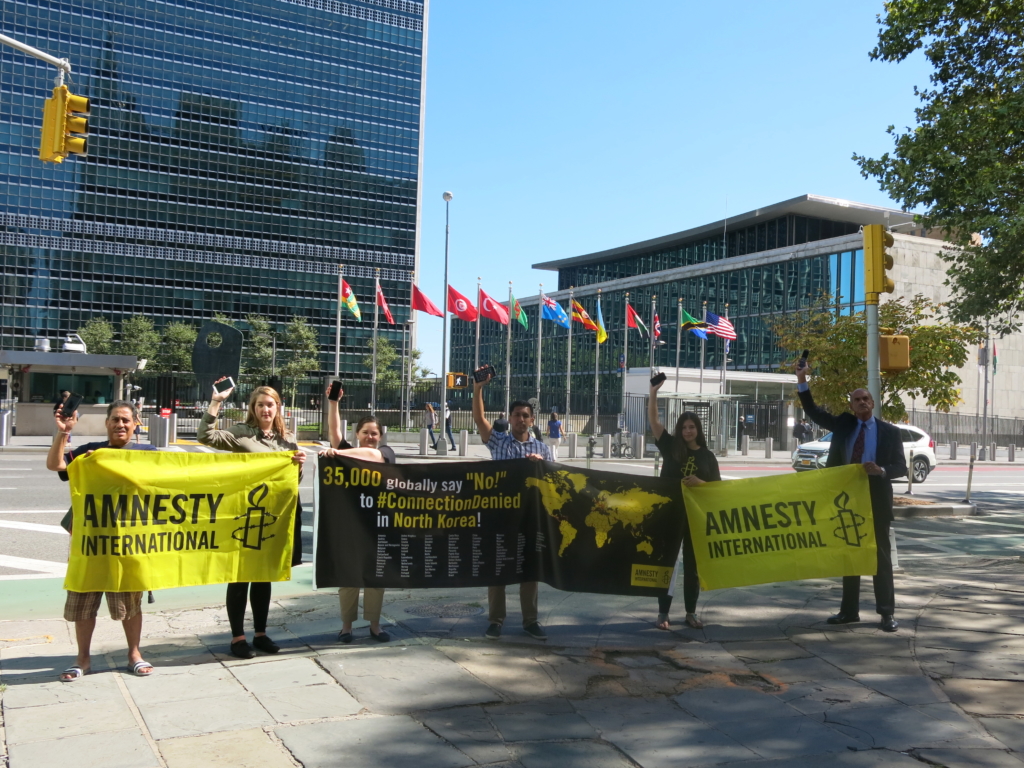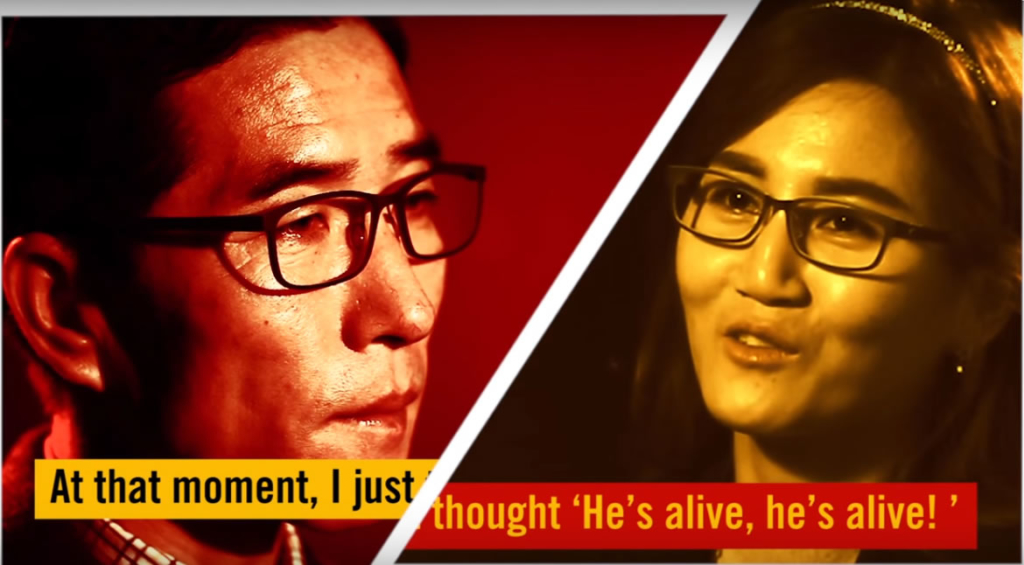There are many ups and downs in the life of a human rights campaigner: progress is hard to achieve and setbacks are not infrequent. Yet, even a North Korea campaigner can have a good day, as Suki Chung, Regional Campaign Coordinator for Amnesty International (East Asia) explains.
It was a fine morning in Hong Kong. The week-long rain had washed every sidewalk and a tincture of freshness still lingered in the air despite the traffic fumes. I had begun my working day in the office, checking through the loads of emails and social media newsfeeds that keep reminding me of the many colleagues around the world who fight for human rights every day.
An hour later, a whoop of excitement suddenly emanated from a corner of the office – it was my colleague Arnold Fang, our East Asia Researcher. Running over to check the source of the flutter, I soon joined him in shouts of elation. A colleague based in the New York UN office had just sent over a long-awaited document — a draft resolution “Situation of human rights in the Democratic People’s Republic of Korea (DPRK)” that was just adopted at the Third Committee of the United Nations General Assembly. Some of the human rights violations highlighted in a campaign we launched earlier in 2016 were added to this year’s resolution.

The following paragraph for instance added the issue of restrictions to the enjoyment of human rights online:
“The General Assembly … expresses its very serious concern at … All-pervasive and severe restrictions, offline and online, on the freedoms of thought, conscience, religion or belief, opinion and expression, peaceful assembly and association, the right to privacy and equal access to information, by such means as the unlawful and arbitrary surveillance, persecution, torture, imprisonment and, in some instances, summary executions of individuals exercising their freedom of opinion and expression, religion or belief, and their families,…”.
Why the thrill over a few additional words here and there in a 10-page formal UN document few may read, you may ask.

In March 2016, I coordinated the launch of the North Korea #ConnectionDenied campaign from Amnesty International’s East Asia office. This was timed with the launch of our report of the same name that urged the North Korean government to stop isolating its citizens from the outside world and to allow people in North Korea to freely communicate and access information across borders without the fear of reprisal. These additional few words of text in the UN resolution highlighting our campaign calls reflected some of the outcomes we wanted to see – to contribute to an effective international response, and to compel the international community to hold North Korea to account for its human rights violations.
We knew it was not an easy campaign from the start. There is limited scope to influence the North Korean government in a way that translates into change on the ground.
North Korea is often characterized as the world’s most secretive and inaccessible country, and is often portrayed with a “hell-on-earth” narrative sensationalized by media headlines along with the nuclear tests or risk of nuclear attacks. But rather than setting our campaign against such familiar background, we chose to highlight the right to freedom of expression in North Korea.
We believe connection is a basic need of every human being and no one should be denied their basic human rights to connect with their loved ones
Suki Chung, Amnesty International Regional Campaign Coordinator
The motivation is simple but poignant – we believe connection is a basic need of every human being and no one should be denied their basic human rights to connect with their loved ones and to the outside world. Having been a human rights campaigner for many years, it had weighed heavily on my heart whenever I heard stories of North Koreans who had to climb up mountains often in the dark to make phone calls to their family outside the country, or who risked arrest for sending a text message.
It turned out it was not just me who was moved by these stories. Within six months of the #ConnectionDenied campaign launch, a total of 28 Amnesty sections had taken part in the campaign, and some 35,000 people from 105 countries had signed our petition calling on Kim Jong-un to stop keeping citizens in isolation. The campaign culminated in September with a solidarity action organized in collaboration with AIUSA activists that took place in New York during which we delivered our statement and petition signatures to the DPRK’s United Nations mission office.
On 19 December, the full UN General Assembly adopted by consensus the resolution on human rights in North Korea, including new wording on our concerns from the #ConnectionDenied campaign.
We know better than to expect immediate visible results on the ground in response to the resolution. Impact will require the engagement of a broad range of actors: governments, organizations, NGOs and civil society. But an effective global response on North Korea that is benchmarked against international human rights standards is crucial.
Our major goal in this campaign is to pierce the information wall around North Korea through a combination of campaigning, advocacy, public action and the gathering of international voices to improve the situation of human rights in North Korea.
We will need constant effort to show the North Korean government the world is watching, and supporting the call for the free flow of information is an important step.
Success is the sum of many efforts, and I hope that this small but concrete success will lead to others.


